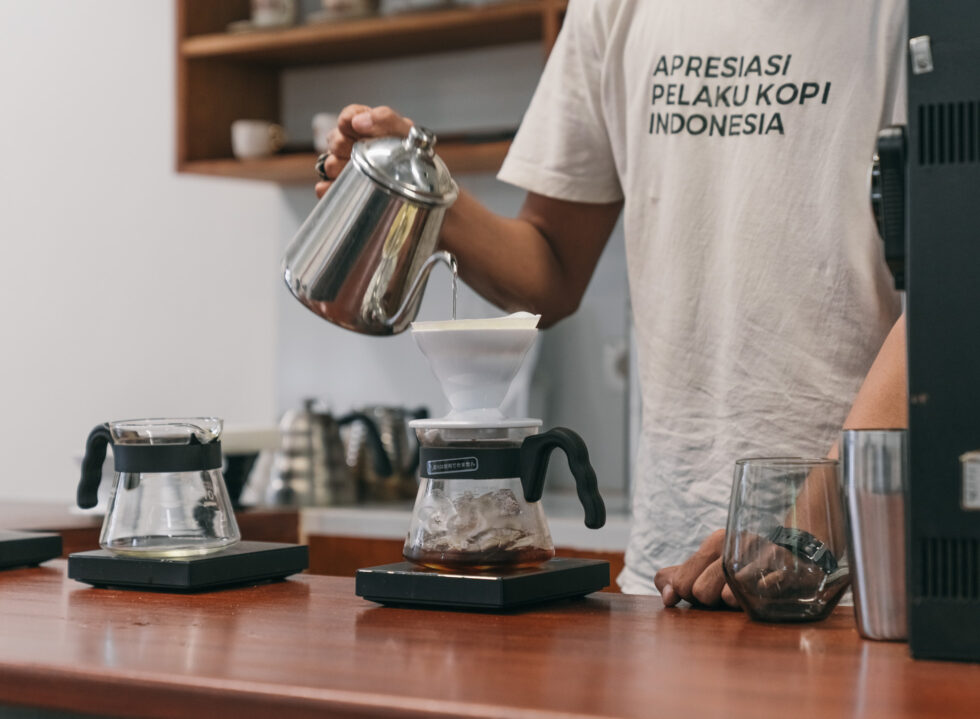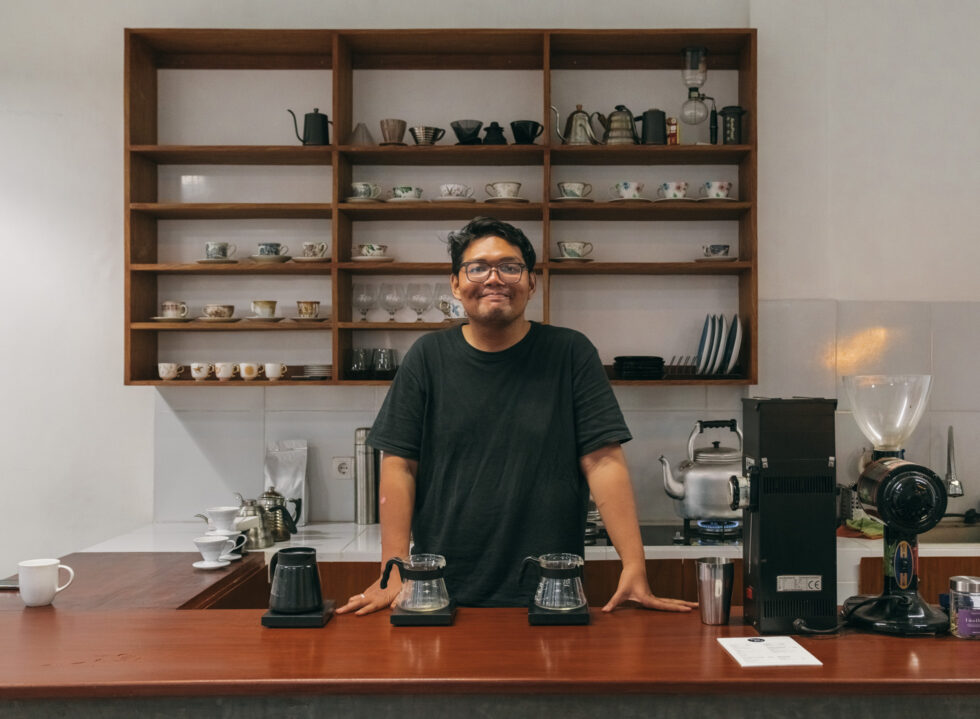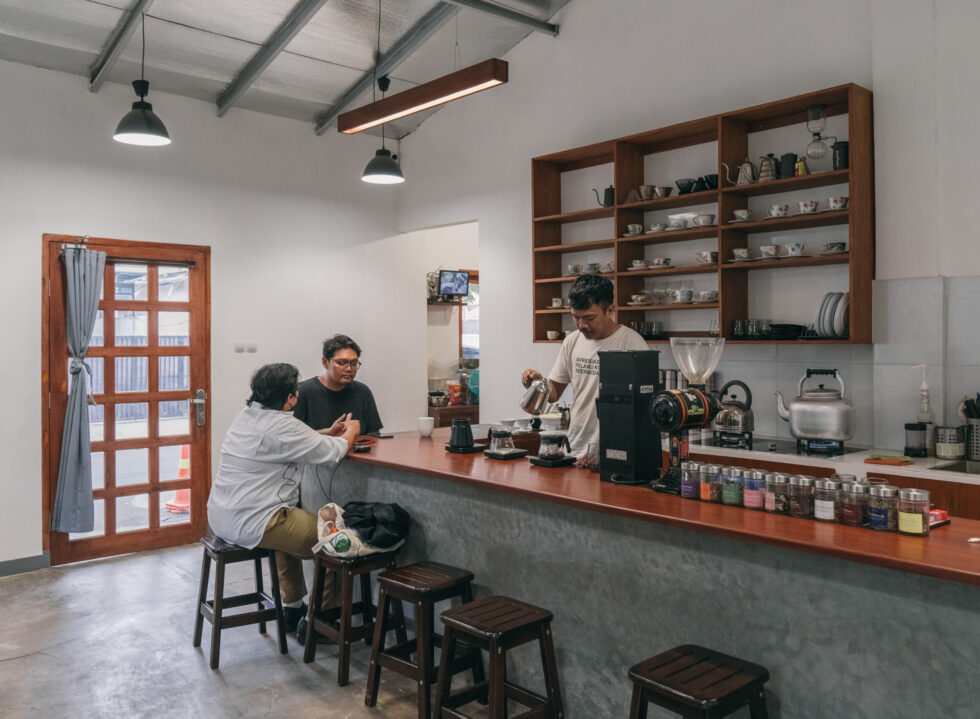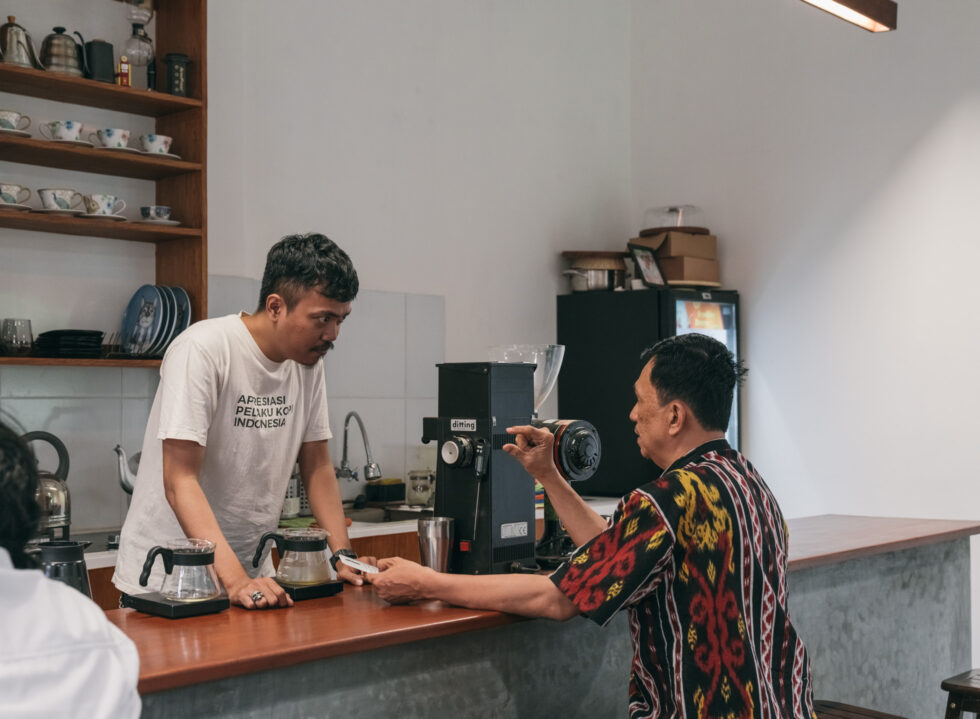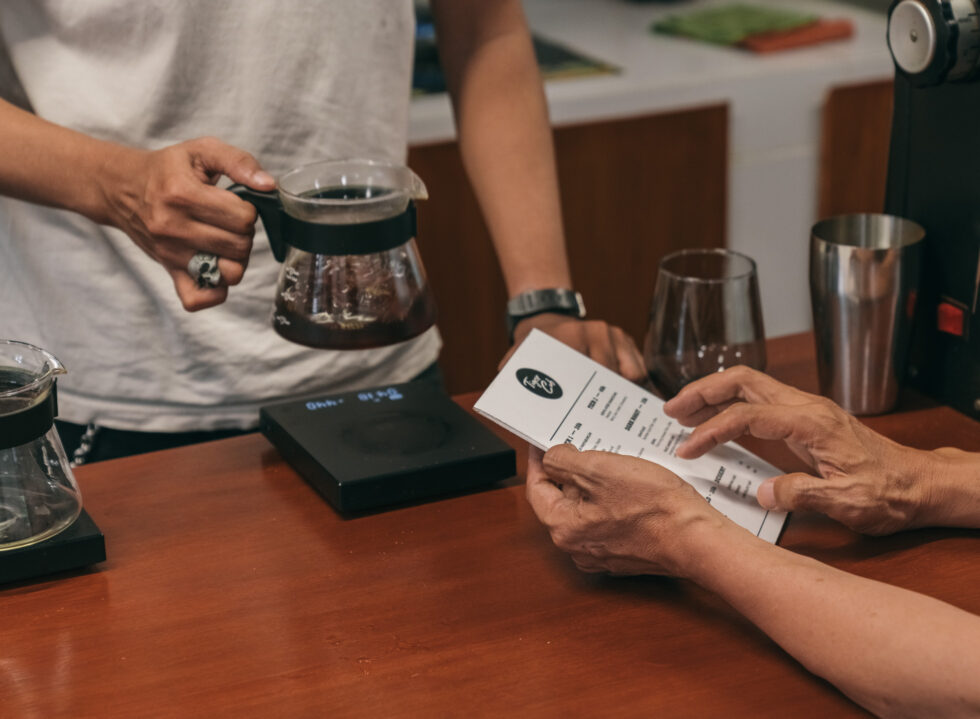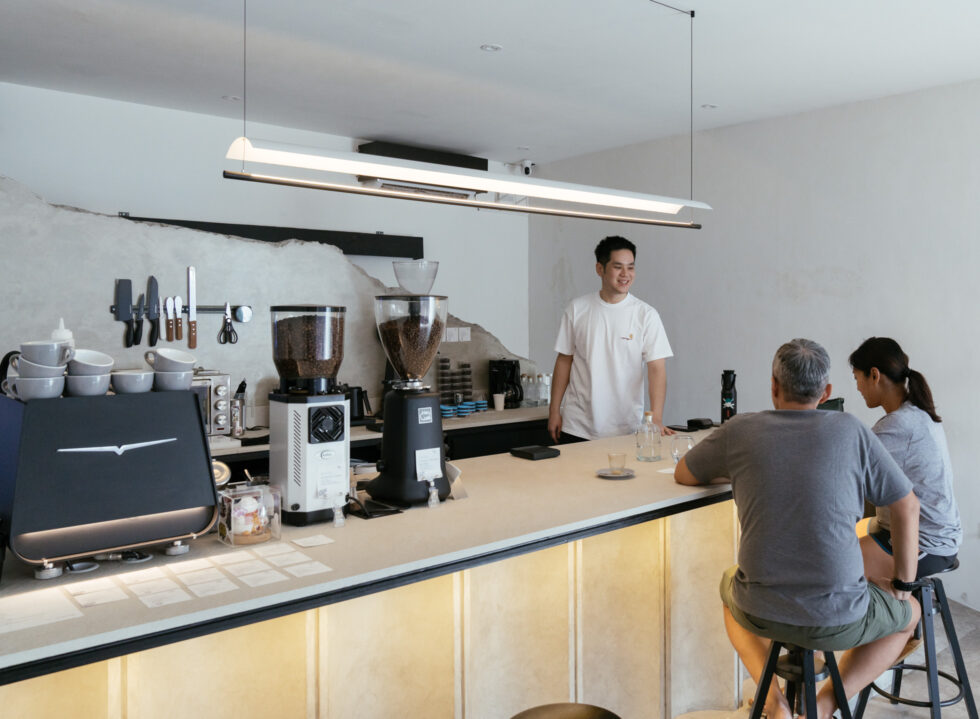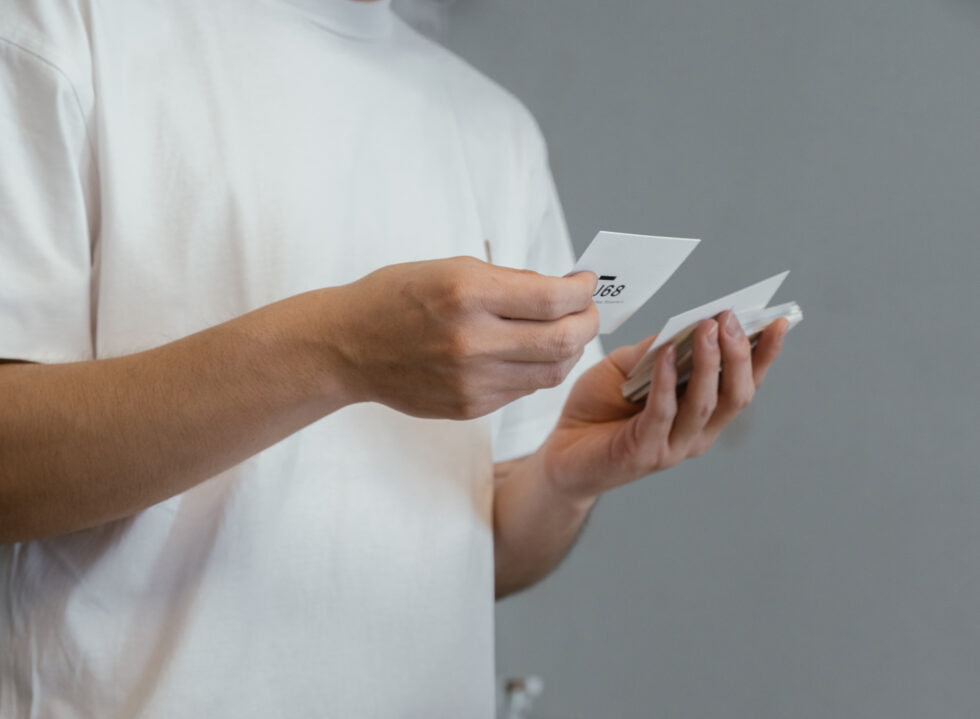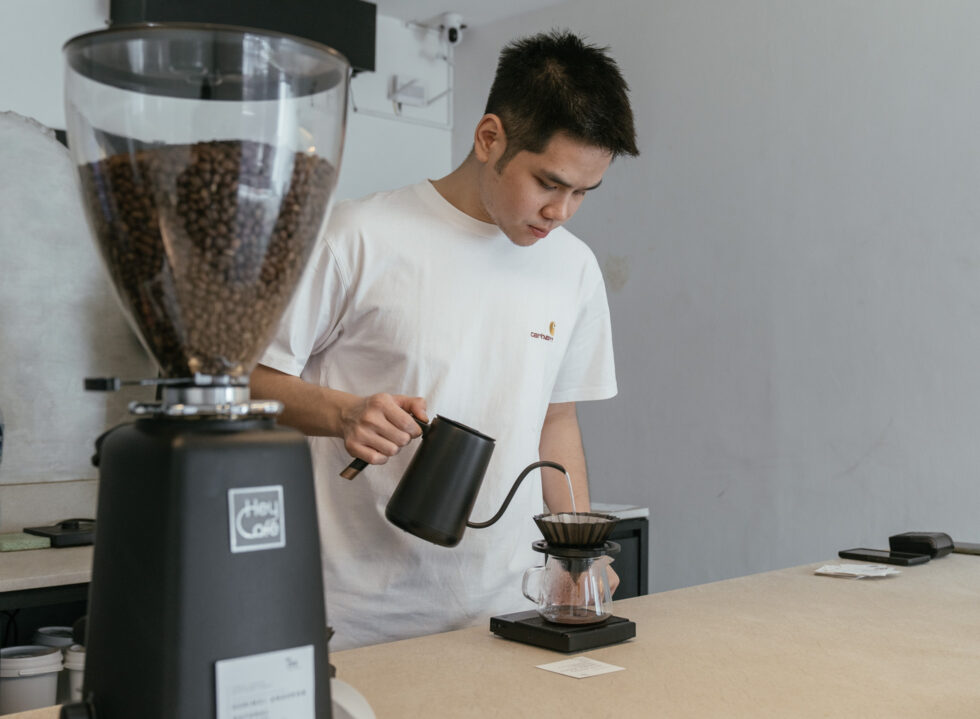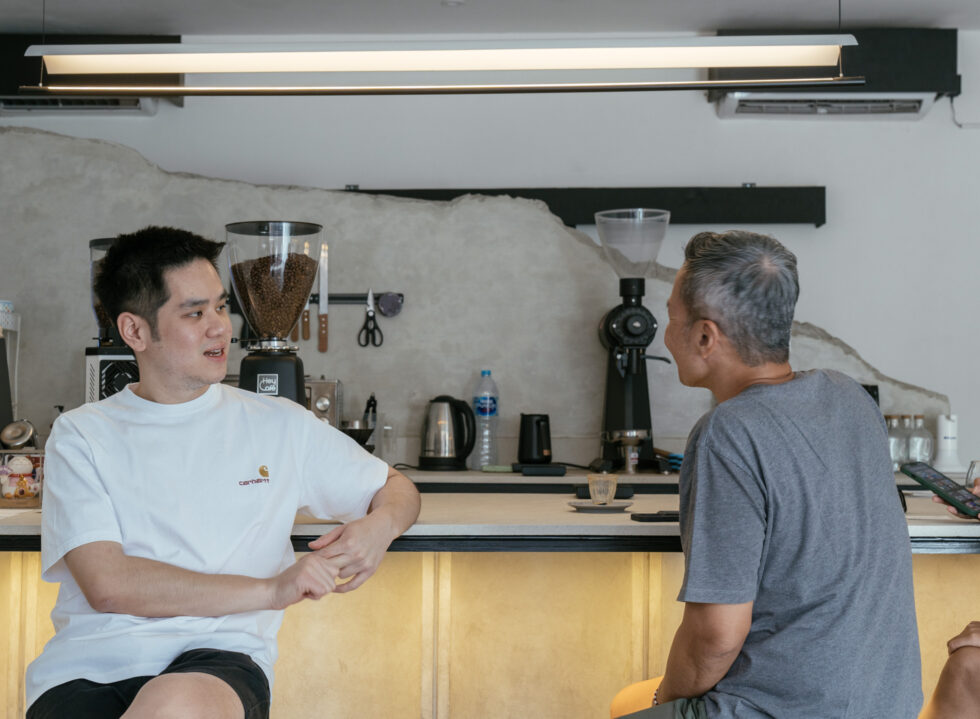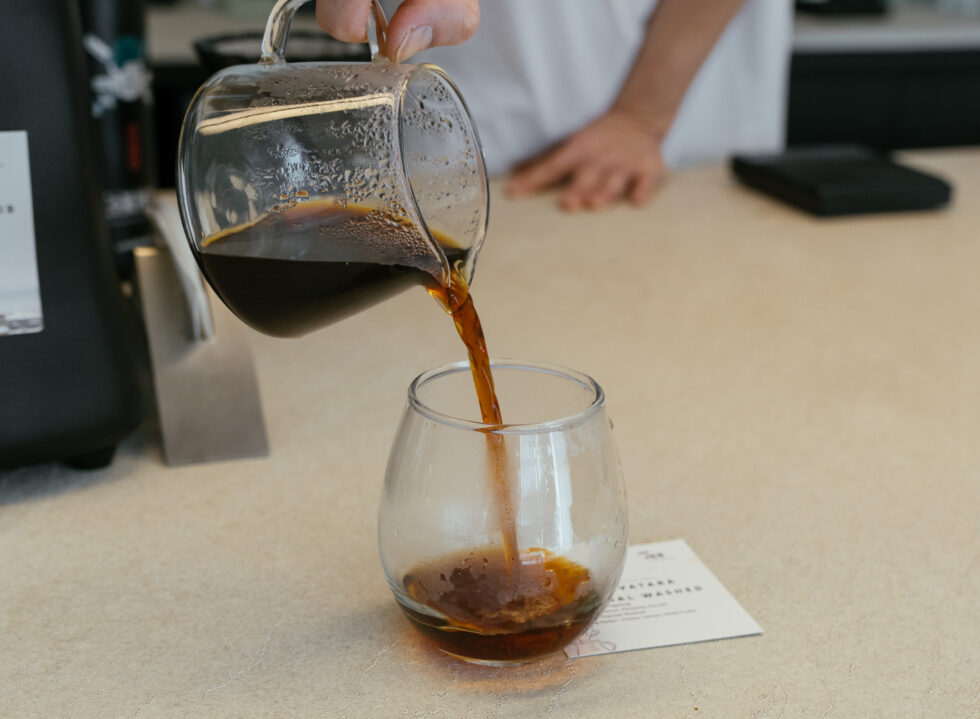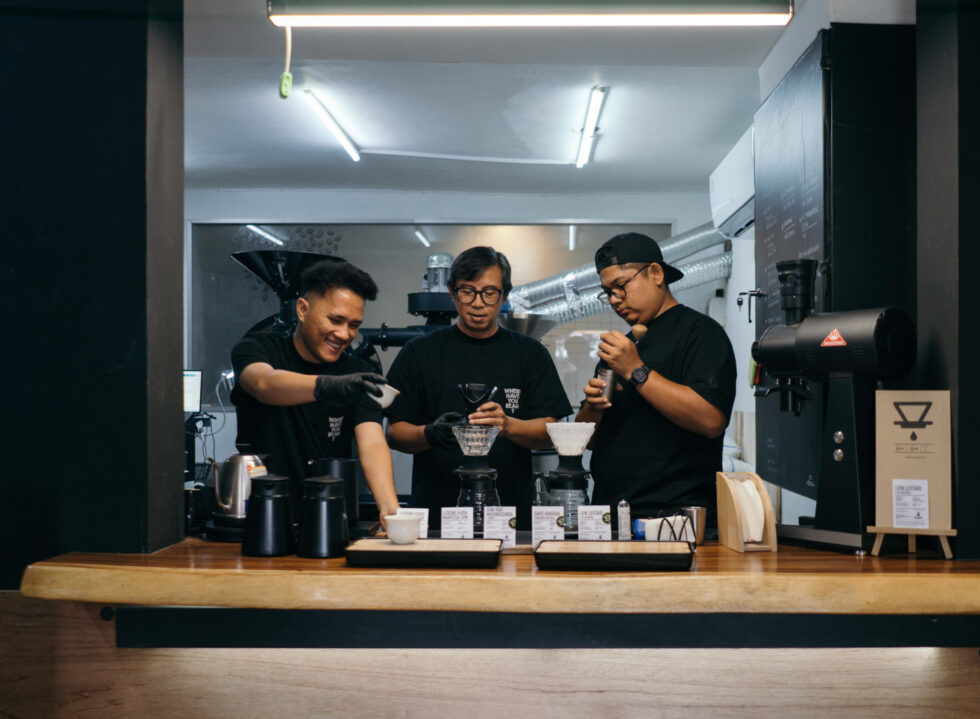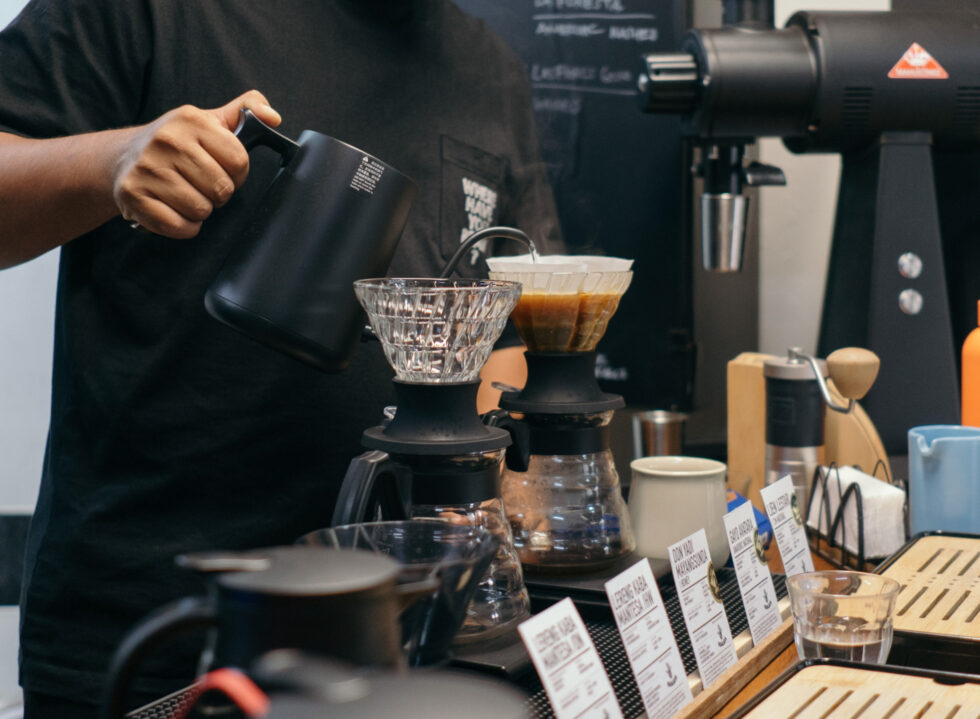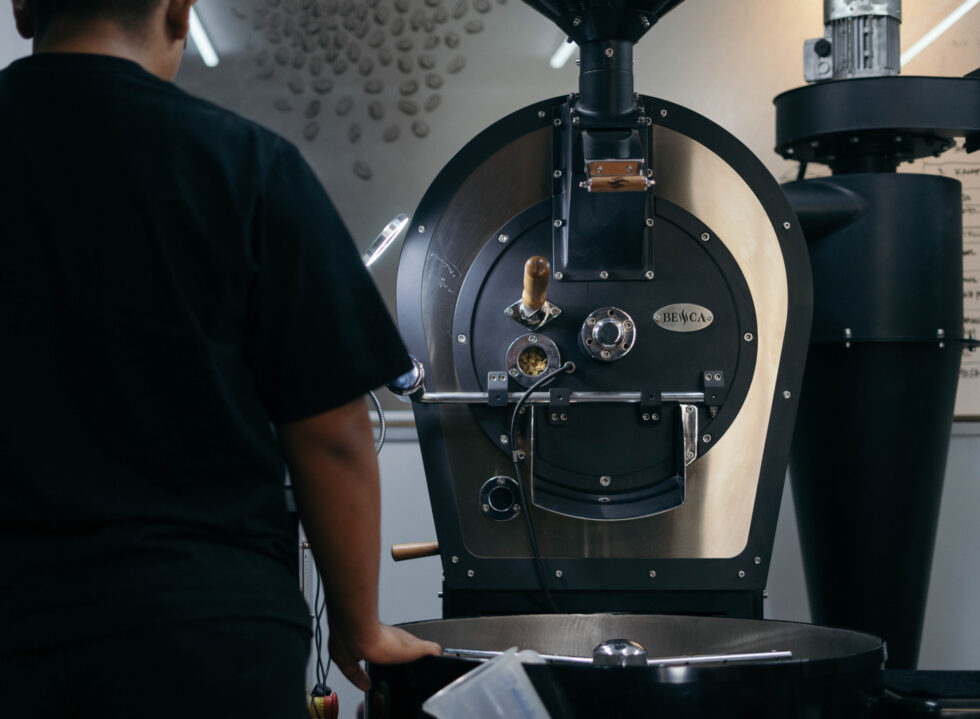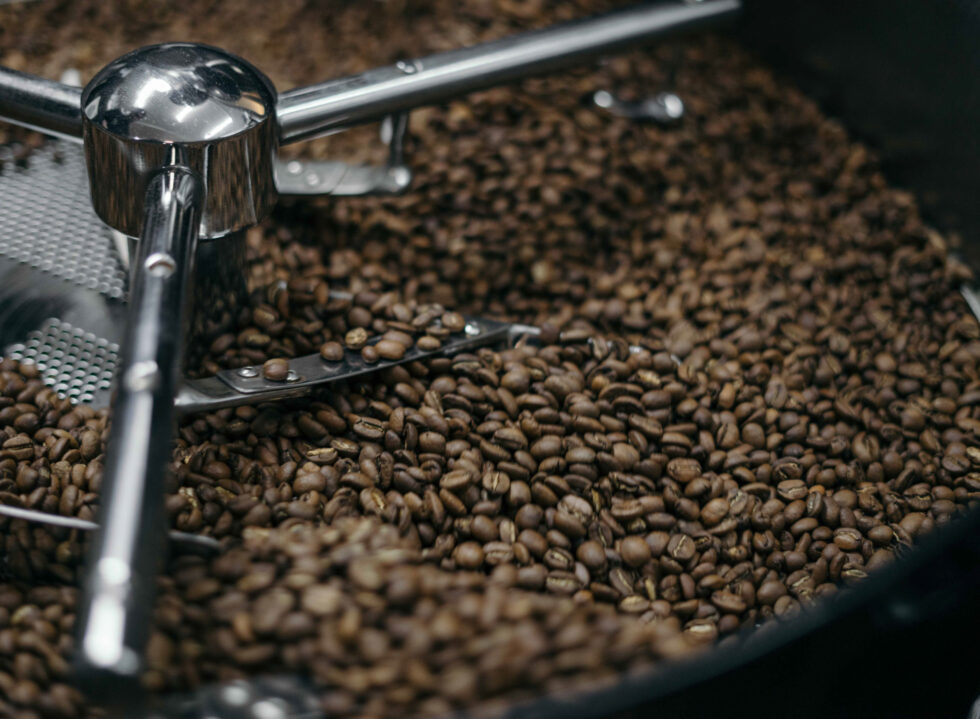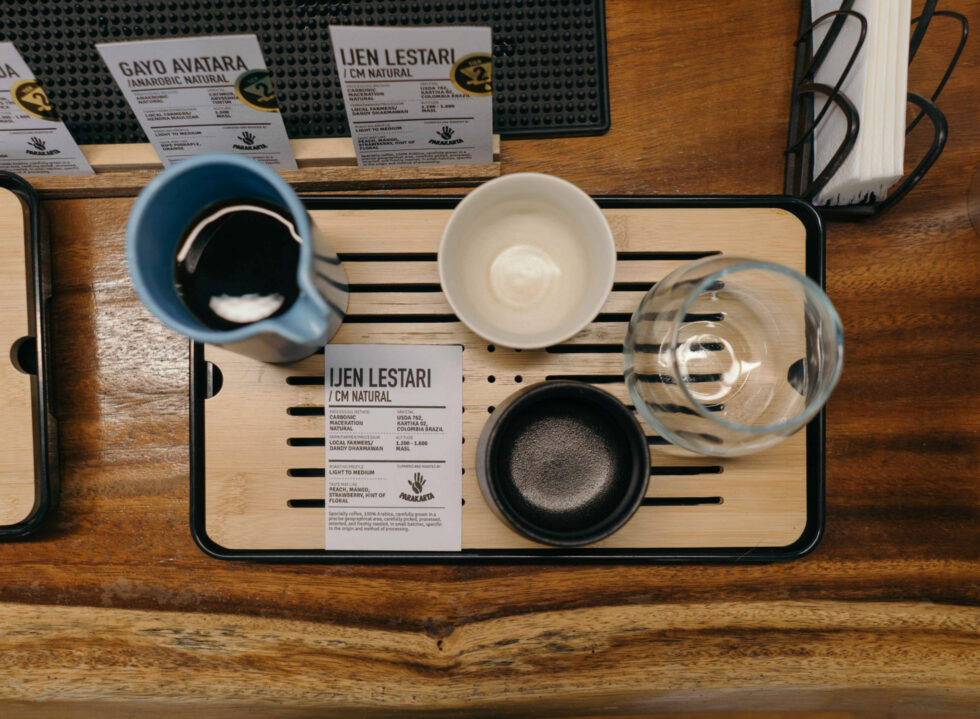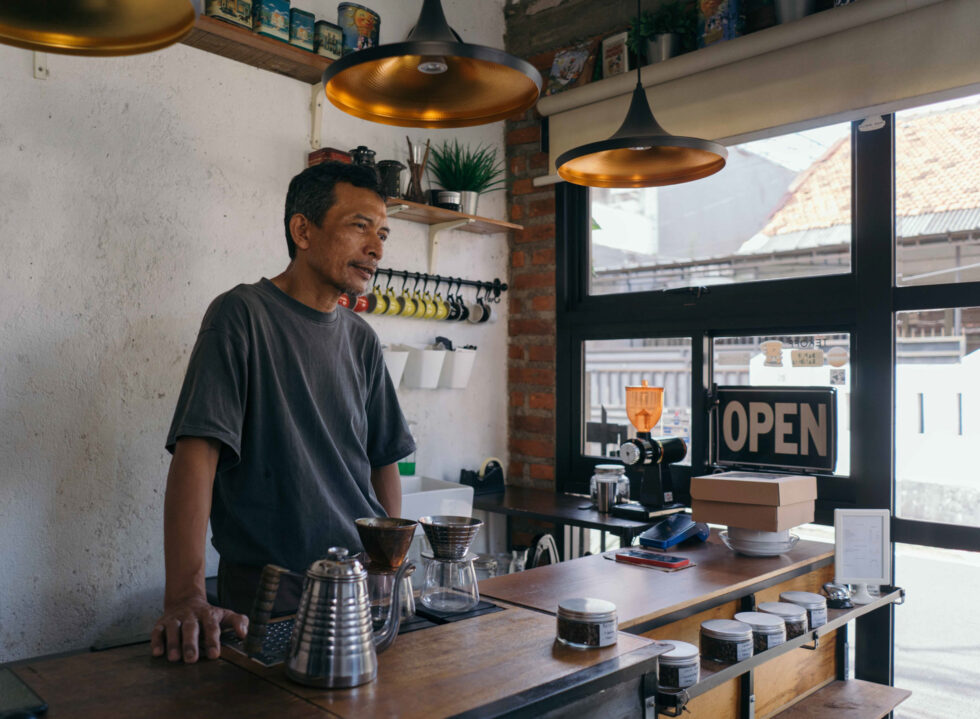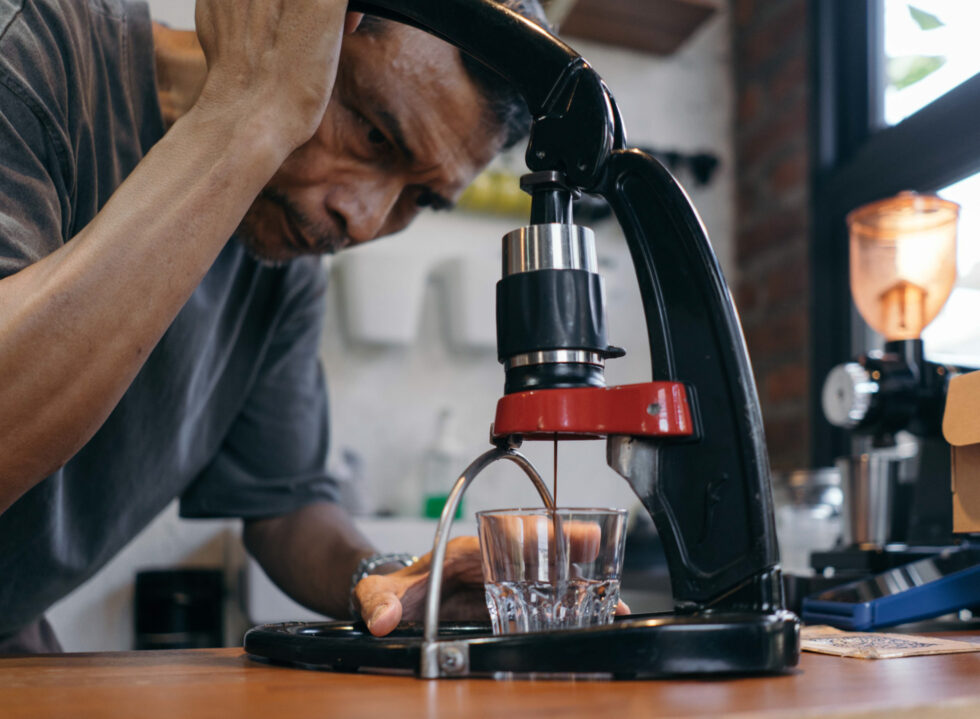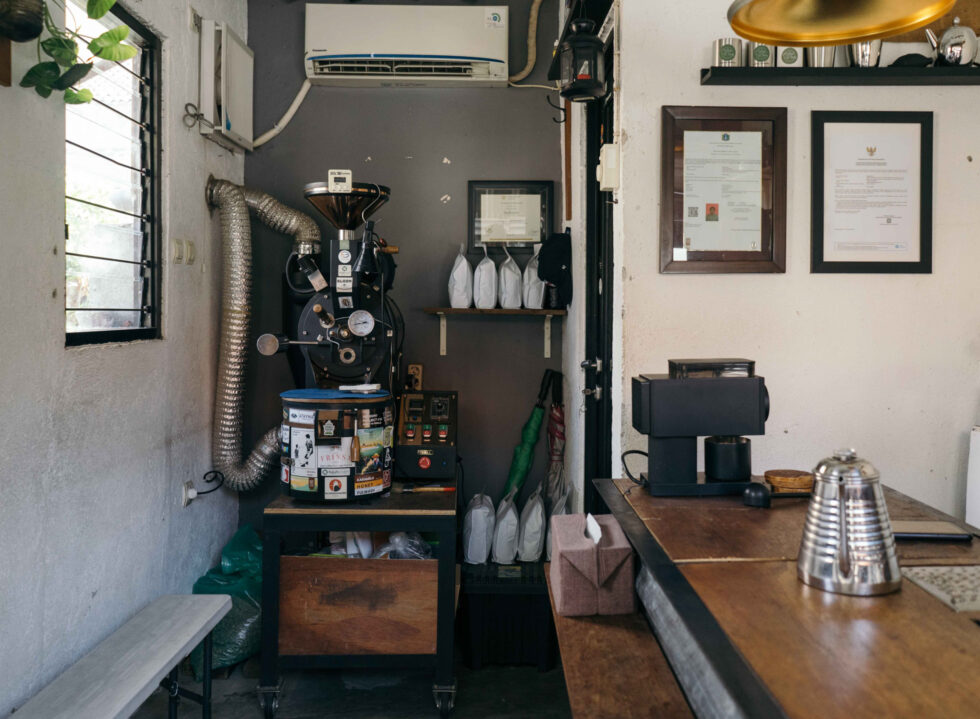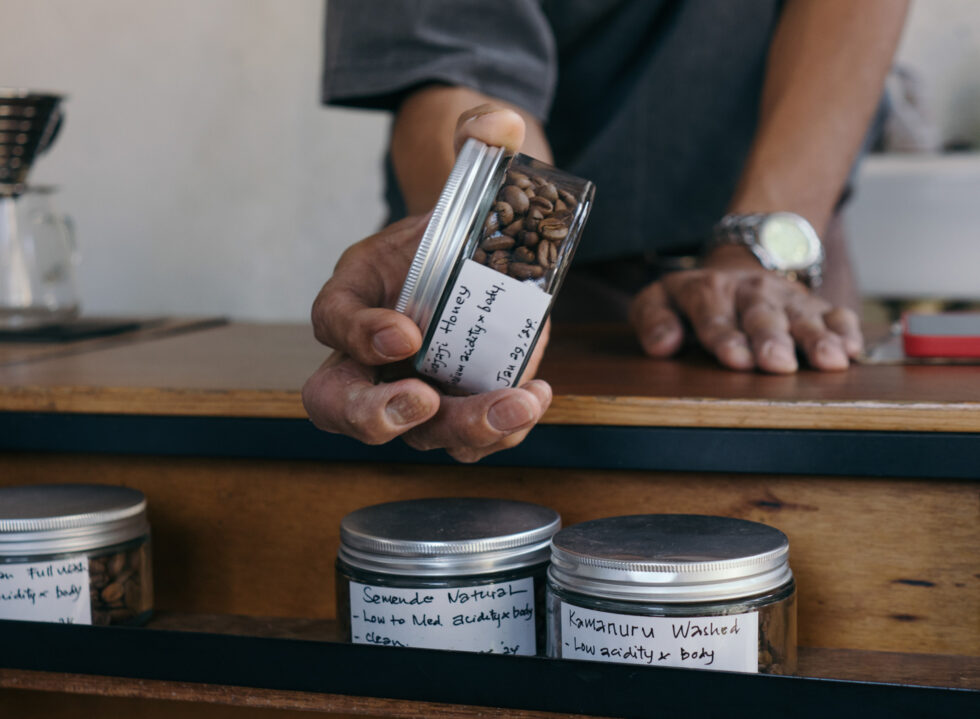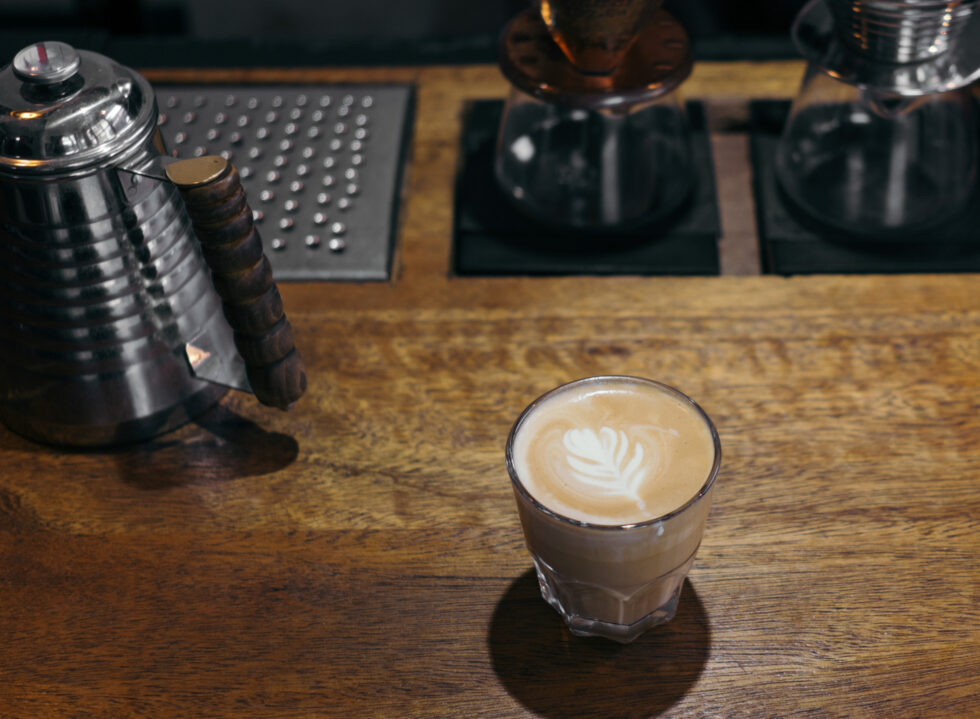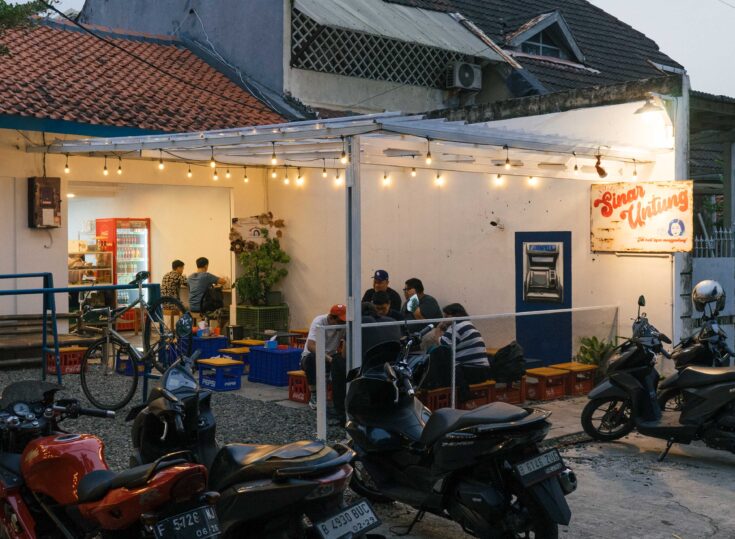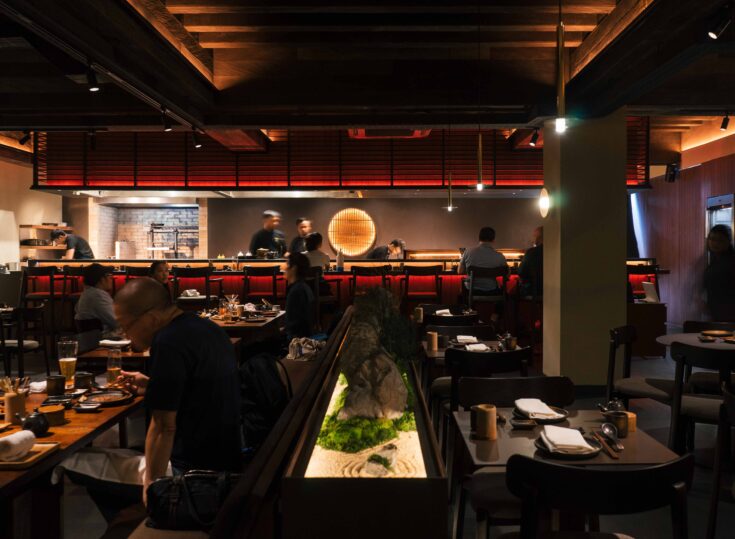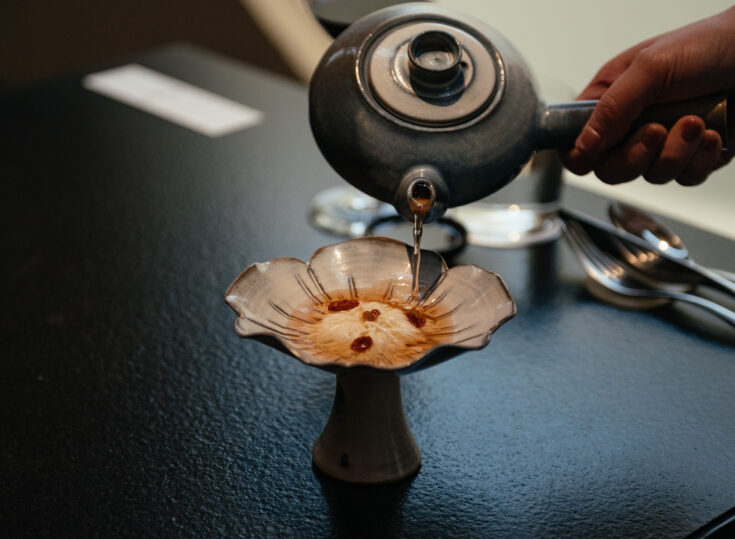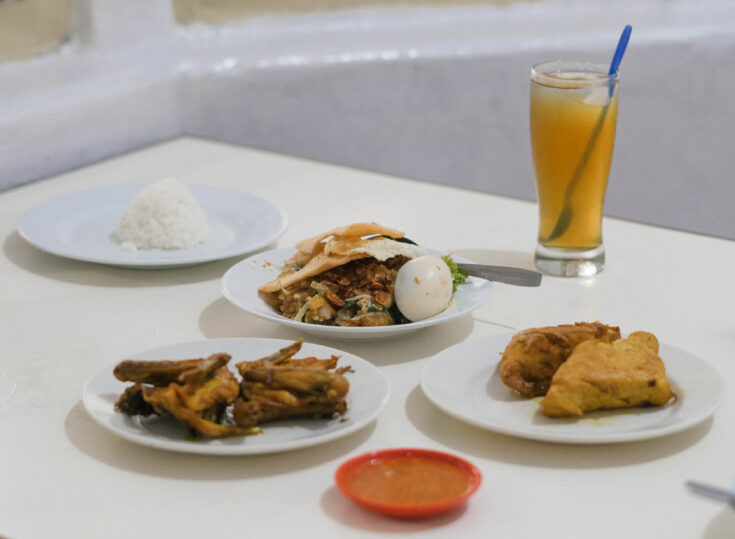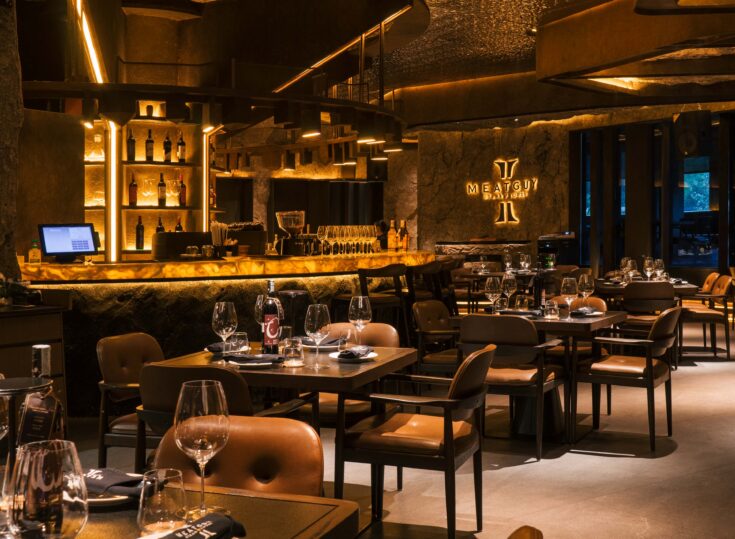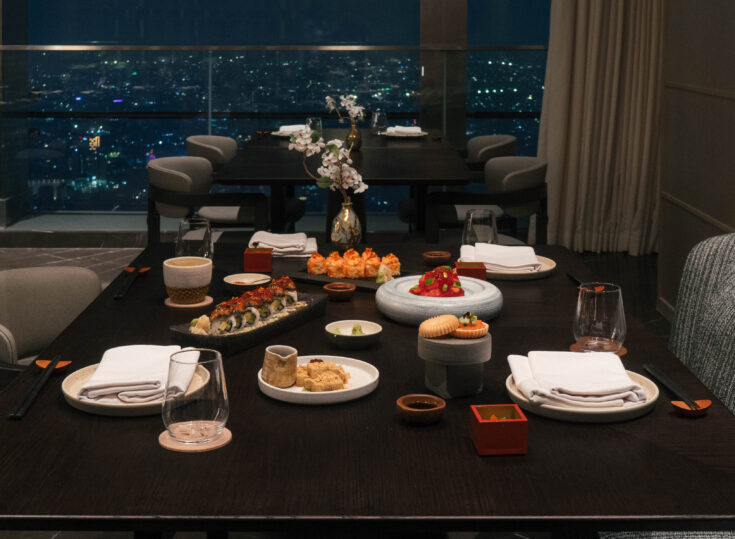“The manual brew movement has been happening for a long time. Even in 2014, Bandung was already crowded with manual brew shops,” recalled Cubung Hanito, who himself opened manual brew joint Wisang Kopi in Jakarta that same year alongside his then-girlfriend and now wife Nanda Imaniar—making him one of the earliest players in the scene.
A movement inspired by old-school Japanese cafés, the kissaten, it was one of the initial markers of third-wave coffee in the city; the manual brewing method has always been known for its ability to spotlight the flavours and thus the quality of specialty coffee beans.
“Then around 2017-2018, the es kopi susu (iced latte, sweetened with palm sugar) trend took over; and these small shops, seeing a new opportunity, tried to tap into the wave. Unfortunately, they couldn’t compete with the big establishments—so a lot of them had to close down. Before that, you could’ve encountered 15 to 20 manual brew bars in a five-kilometre radius.”
Today, the market has shifted once more; ignited by the rise of home brewing during the pandemic, the city’s denizens are becoming more discerning with their coffee. “With the rise of home brewers, a lot of people end up choosing to enjoy their coffee rituals at home. But some are still drawn to the inimitable coffee shop experience, where they can also converse with the baristas and hang out while enjoying a cup of well-brewed coffee.”
The scene is now set for the manual brew to make a return. Cubung himself recently opened up Tiger Cub Coffee in Cilandak to rekindle his roots, with Wisang Kopi having been transformed into a buzzing café during its 2021 move to Panglima Polim. “There has been a significant change in the past 10 years. Back then, most high-quality beans ended up abroad, but now more farmers and processors are realising there’s a local market for them too,” he observed.
That makes it easier for new players to enter the trade, creating a ripple in the city’s coffee scene. In Jakarta, brewers and their V60s are beginning to pop up even in unexpected places—whether that’s on the front porch of their family’s home or even during bike riding events.
Defining the slow bar
As manual brewing continues to rise once more, the term ‘slow bar’ is now beginning to become associated with the practice—but the definition of it varies with each person and industry player. Sometimes it’s used to describe a dedicated section at a café’s bar where, like a chef’s table, visitors can sample filter coffee made of specialty beans while interacting directly with the barista. Other times, it refers to a particular coffee shop concept where the manual brew bar is the main and sole focus of the establishment.
For Cubung, a slow bar doesn’t necessarily have to involve manual brewing. Rather, it’s identified by a style of service where “there’s a specific interaction between the guest and the barista that occurs in an allotted time, during which other guests are not allowed to intervene”. By that definition, he even disqualifies his own joint from the equation.
“The concept was first popularised in Yogyakarta. That’s where the ‘four horsemen’ of slow bars are: Klinik Kopi, Tadasih, Pitutur and Lestari. Their barista-owners adopt a very hands-on approach to every aspect of running the business, even down to details such as crafting daily posts on the coffee bar’s social media page. The four also used to conduct time-limited sessions with their guests. Now, though, only Klinik Kopi and Pitutur still do that.”
“[Slow bars] can set the stage for fourth-wave coffee [in Indonesia], but it depends on whether or not these establishments can survive.” – Ferza Febrian, founder of Tadasih.
Ferza Febrian first founded Tadasih in Pasar Baru, Central Jakarta in 2019. His izakaya-style coffee shop on the second floor of Atom Plaza Mall only fit a few people at a time, and the rest had to sit outside while a serving was in session. It was the city’s first proper introduction to the slow bar concept—and people willingly waited in line for the singular experience.
“The pandemic is definitely one of the deciding factors [behind Tadasih’s success]. That’s when the number of homebrewers multiplied. Once they were able to go out, there was an increased demand for coffee shops specialising in manual brew but not a lot of supply,” shared Ferza via video chat.
“When Tadasih moved to Yogyakarta in 2022, the city had already distinguished itself as a city for manual brew and slow bar. They took part in amplifying this growing movement, which accumulated into its own massive wave as people saw the business potential of these coffee bars and tried to make their own versions with a similar concept and atmosphere.”
As Tadasih enters its fifth year, however, Ferza’s perspective on what constitutes a slow bar has shifted. He recently installed a new, elongated bar to accommodate more guests at a time, effectively abandoning the old model of serving.
“We need to rethink the definition of a slow bar. Instead of interpreting the words literally and aiming for a slow-paced service—which limits the flow of business—for me, the key is just to be mindful in its execution,” he opined. “Think Japanese jazz bars instead of a fine dining service; quick, but not rushed. [Slow bars] can set the stage for fourth-wave coffee [in Indonesia], but it depends on whether or not these establishments can survive.”
A showcasing medium for roasteries
“I don’t think [slow bars] are ever going to be a global wave, but only time will tell their future in the city—and it comes down to how we perceive and consume coffee. Is it something to be savoured unhurriedly, a social drink for hangouts, or sustenance that fuels you as you work?” commented Christian Setiadi, founder of J68 Coffee Roasters, a slow bar-cum-micro roastery in Gandaria. “Most likely, slow bars are not going away anytime soon. Our coffee culture has always associated the drink with the act of slowing down and relaxing.”
Right now though, he sees slow bar’s potential as a ‘showroom’ for his micro roastery business. Drawing upon the skills he acquired from working in Sydney, Christian uses the tiny desk-top roasting machine in the corner of his shop to cook up a variety of single-origin roasted beans, dividing them into different categories of brewing methods: a dark, intense roast for white coffee (to balance the milk), light and easy with a bit more acidity for the espresso and an even lighter roast for the filter to keep the flavours intact during the two to three minutes brewing process.
“It definitely helps in giving a ‘face’ to my roastery, which I used to run from home,” admitted Christian. Since it opened in 2023, the slow bar has attracted homebrewers looking for new beans and insight as well as café businesses in search of a roasting partner; among the latter are Petite Corner and MONU in Serpong, Otella & Buranchi in Alam Sutera, EMJI in Pluit and even Nalla Coffee in Solo.
“These B2B streams also become a revenue backing for the slow bar itself. Because with all its limitations, I don’t see any potential growth [for my slow bar] beyond what we currently see today,” shared Christian candidly. “But these boundaries and limitations of a slow bar are also what makes the experience novel. The small space, for one, fosters an atmosphere where strangers can easily form new bonds—and I think this intimacy is what defines a slow bar more than the brewing method or service. Without these quirks, how are we different from all the big-scale specialty coffee shops out there?”
“People that come in have been telling us that this simple and intimate-style coffee shop is exactly what they have been looking for.” – Widyadarma Abi Setiawan, founder of Parakarta.
On the other side of South Jakarta, micro-roastery Parakarta has adopted a similar approach to their business by installing a manual brew bar at their compact roasting workshop in Kemang Timur. Initially intended as a supplementary tasting corner for their beans—all of which are directly sourced from local farmers—it unexpectedly became a hit of its own, attracting social media attention that they happily boost on their own page.
“People that come in have been telling us that this simple and intimate-style coffee shop is exactly what they have been looking for. It’s a bit reminiscent of warung kopi (street-side coffee kiosks), where people know each other and conversations can flow freely and even go a bit all over the place,” shared founder Widyadarma Abi Setiawan, also known as Wima.
“Essentially, we made the concept to be as simple as it gets because we want the coffee to speak for itself. Our role is to help with the narration by telling the process behind each coffee bean; who the farmers are, and where they come from. We’re just continuing their story.”
Since opening Parakarta last August, Wima, his co-founder Muhammad Jody and barista-roaster Rizky Nur Setiafani has made visits across the villages of their farming partners, leading them to discover new crops of beans from overlooked regions. “Like the East Manglayang bean from Genteng Village in Sumedang, for which we also guided the farmers in the fermenting process.”
Closing the gap
In 2019, the same year Tadasih opened its doors in Pasar Baru, another coffee bar made its introduction to the residential neighbourhood of Tebet. A wood-clad, tiny square kiosk fitting a maximum of six customers at a time, Coffee of Things is 61-year-old Sudiarso a.k.a Om Acoy’s retirement project, built on 15 years of personal research and roasting experimentation with his wife’s frying pan.
While it never had the mass appeal of big, Instagrammable cafés nor the internet virality of Tadasih, Om Acoy’s coffee bar has quietly become a learning hub for budding roasters in the city, with the retiree now armed with a proper machine and a professional certificate from roasting company Anomali Coffee. “A guest requested me to put my roasting machine in the room so he could learn during his visits here—and that’s how it all began in 2022. By now, I’ve taught 11 batches of students,” revealed Om Acoy.
“I think people have their own definition [of a slow bar]. For me, it’s about creating a transparent, honest experience and closing the gap between the brewer and the customer. I want to make them feel as comfortable as they would in their own home, and in a way involve them in the brewing process.”
Om Acoy’s case is yet another example of manual brew and slow bars’ unique ability to turn their quirks into novelties. Fitting right into the resurging interest in quality coffee as well as a culture where these caffeinated brews serve as a social lubricant and, in Om Acoy’s words, “medium for relaxation”, it’s unsurprising that these small, intimate coffee bars are having their moment again in the city.
